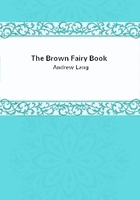We should proceed from Harwich to Hamburg. Besides being thirty-six times longer than the Dover-Calais passage this rather unusual route had an air of adventure in better keeping with the romantic feeling of this Polish journey which for so many years had been before us in a state of a project full of colour and promise, but always retreating, elusive like an enticing mirage.
And, after all, it had turned out to be no mirage. No wonder they were excited. It's no mean experience to lay your hands on a mirage. The day of departure had come, the very hour had struck.
The luggage was coming downstairs. It was most convincing. Poland then, if erased from the map, yet existed in reality; it was not a mere PAYS DU REVE, where you can travel only in imagination. For no man, they argued, not even father, an habitual pursuer of dreams, would push the love of the novelist's art of make-believe to the point of burdening himself with real trunks for a voyage AUPAYS DU REVE.
As we left the door of our house, nestling in, perhaps, the most peaceful nook in Kent, the sky, after weeks of perfectly brazen serenity, veiled its blue depths and started to weep fine tears for the refreshment of the parched fields. A pearly blur settled over them, and a light sifted of all glare, of everything unkindly and searching that dwells in the splendour of unveiled skies. All unconscious of going towards the very scenes of war, I carried off in my eye, this tiny fragment of Great Britain; a few fields, a wooded rise; a clump of trees or two, with a short stretch of road, and here and there a gleam of red wall and tiled roof above the darkening hedges wrapped up in soft mist and peace. And I felt that all this had a very strong hold on me as the embodiment of a beneficent and gentle spirit; that it was dear to me not as an inheritance, but as an acquisition, as a conquest in the sense in which a woman is conquered--by love, which is a sort of surrender.
These were strange, as if disproportionate thoughts to the matter in hand, which was the simplest sort of a Continental holiday. And I am certain that my companions, near as they are to me, felt no other trouble but the suppressed excitement of pleasurable anticipation. The forms and the spirit of the land before their eyes were their inheritance, not their conquest--which is a thing precarious, and, therefore, the most precious, possessing you if only by the fear of unworthiness rather than possessed by you.
Moreover, as we sat together in the same railway carriage, they were looking forward to a voyage in space, whereas I felt more and more plainly, that what I had started on was a journey in time, into the past; a fearful enough prospect for the most consistent, but to him who had not known how to preserve against his impulses the order and continuity of his life--so that at times it presented itself to his conscience as a series of betrayals--still more dreadful.
I down here these thoughts so exclusively personal, to explain why there was no room in my consciousness for the apprehension of a European war. I don't mean to say that I ignored the possibility;I simply did not think of it. And it made no difference; for if Ihad thought of it, it could only have been in the lame and inconclusive way of the common uninitiated mortals; and I am sure that nothing short of intellectual certitude--obviously unattainable by the man in the street--could have stayed me on that journey which now that I had started on it seemed an irrevocable thing, a necessity of my self-respect.
London, the London before the war, flaunting its enormous glare, as of a monstrous conflagration up into the black sky--with its best Venice-like aspect of rainy evenings, the wet asphalted streets lying with the sheen of sleeping water in winding canals, and the great houses of the city towering all dark, like empty palaces, above the reflected lights of the glistening roadway.
Everything in the subdued incomplete night-life around the Mansion House went on normally with its fascinating air of a dead commercial city of sombre walls through which the inextinguishable activity of its millions streamed East and West in a brilliant flow of lighted vehicles.
In Liverpool Street, as usual too, through the double gates, a continuous line of taxi-cabs glided down the inclined approach and up again, like an endless chain of dredger-buckets, pouring in the passengers, and dipping them out of the great railway station under the inexorable pallid face of the clock telling off the diminishing minutes of peace. It was the hour of the boat-trains to Holland, to Hamburg, and there seemed to be no lack of people, fearless, reckless, or ignorant, who wanted to go to these places. The station was normally crowded, and if there was a great flutter of evening papers in the multitude of hands there were no signs of extraordinary emotion on that multitude of faces. There was nothing in them to distract me from the thought that it was singularly appropriate that I should start from this station on the retraced way of my existence. For this was the station at which, thirty-seven years before, I arrived on my first visit to London.















